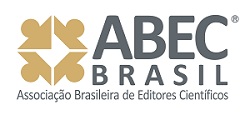Effect of storage temperature and time on potato cv. Innovator industrial quality
DOI:
https://doi.org/10.5039/agraria.v15i3a8301Keywords:
maillard reaction, reducing sugars, Solanum tuberosum L., sproutingAbstract
Reducing the storage temperature delays sprouting and increases the storage period, prolonging the supply to the industry. However, it may cause enzymatic browning before frying and non-enzymatic browning over frying. Therefore, the objective of this study was to determine the effects of a reduction in the temperature and storage time on the quality of cv. Innovator intended for frying. Potato tubers were stored at 6, 7 and 8 °C for 150 days. This study analyzed the total soluble sugars (TSS), non-reducing sugars (NRS), reducing sugars (RS), post-frying coloring, fresh mass loss (FML), sprouting onset, peroxidase (POD) and polyphenoloxidase (PPO) activity. The TSS, NRS and RS contents were higher in tubers stored at 6 °C, classified in category 3, while at 7 and 8 °C, it was classified in category 2. Storage time affected sugar concentrations only in tubers at 6 °C. Also at 6 °C, the FML was lower and sprouting was delayed by 30 days. Regardless of temperature and storage time, there was no enzymatic darkening due to POD and PPO activity. It is concluded that reducing the storage temperature to 6 °C prolongs the dormancy period, reduces fresh mass loss, increases reducing sugar content and non-enzymatic browning.
Downloads
Downloads
Published
How to Cite
Issue
Section
License

This work is licensed under a Creative Commons Attribution-NonCommercial 3.0 Unported License.


